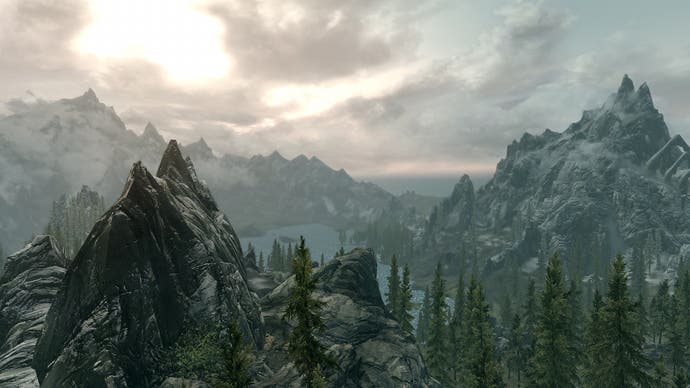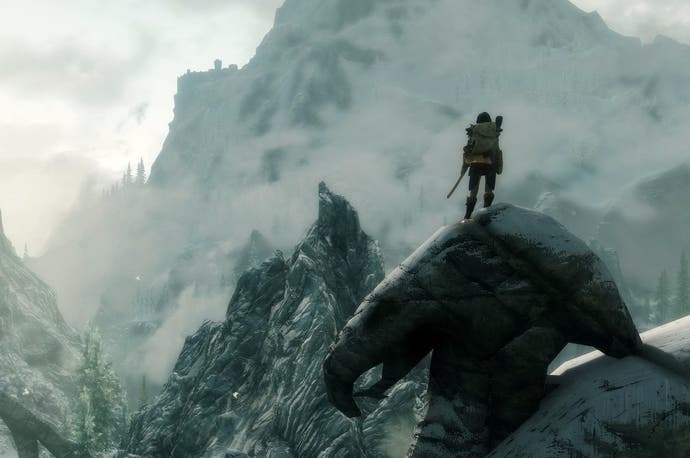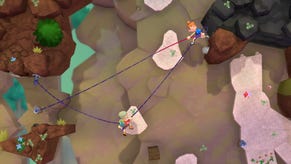Can too much choice be a bad thing?
Hair of the cat.
"I have a hundred ways of escaping my enemies," the Fox said to the Cat.
"I have only one," said the Cat. "But I can generally manage with that."
Just at that moment they heard the cry of a pack of hounds, and the Cat immediately scampered up a tree and hid herself.
"This is my plan," said the Cat. "What are you going to do?"
The Fox thought first of one way, then of another, and while he was debating, the hounds came nearer and nearer, and at last the Fox in his confusion was caught up by the hounds and soon killed by the huntsmen.
How do you make decisions? Do you pick the first option that seems right? Do you look at all the options and then make a decision?
A lot of us would say we look at all the options - but 'all' is pretty relative. There are almost 20,000 games on Steam at the moment. We could spend all evening just choosing something to buy. So we filter. But even then, the obvious, methodical way of filtering would be to eliminate all the genres we don't like and all the games we own, order the rest from highest to lowest rated, and work down the list by reading reviews.

I've never met anyone who does that. I don't know exactly how the data breaks down - I imagine that data only exists in a tungsten-lined server room somewhere in Bellevue with laser traps and crocodiles - but I would expect most of us go through the featured items, occasionally the discovery queue, often come looking for something specific already that we've found through other filters, like this very fine site.
But then your problems are only beginning. I'm sure you know that feeling when you open up your Steam library, stare in dismay at the long list of stuff you quite want to play, vacillate, panic, give up and go back to an old favourite. (This, not its undoubted excellence, is the main reason I have however many hundred hours in FTL.) It's not a happy feeling: it's more like homework than Aladdin's Cave.
(You know BAFTA voters get, basically, a truck backing up and tipping a mountain of games into their Steam account every year? Next time you think this sounds like a great perk, remember the Library Feeling and multiply it by ten.)
Or, to put it another way, have you ever dropped out of an MMO for six months, gone back in, and looked at the kaleidoscopic multiplicity of all those buttons on the action bars, like a nuclear power station control panel designed for genius toddlers? Have you ever stared at it like a dog looking into the future for a half a minute, and then just quit to desktop?
Barry Schwartz, the psychologist, calls this 'the paradox of choice'. He points out that Americans have more freedom of choice, thanks to the feverish profligacy of a market economy, than perhaps any other society ever; but it hasn't particularly made them happier. Having too few choices leaves you bored, deprived, disenfranchised. Having too many gives you anxiety, FOMO, analysis paralysis.
Dan Ariely did an experiment -
(any time an anecdote begins 'Dan Ariely did an experiment', pin your ears back. He's always good value. He started his career wanting to test whether burns victims really preferred their dressings coming off in one agonising yank rather than a series of excruciating jerks, and he runs something called the Centre for Advanced Hindsight)
- an experiment where players had to click on three different doors to win cash. You've only got a hundred clicks, and some doors are worth more cash than others. Once you find a door that's worth good money, the trivial strategy decision is whether to keep clicking that same door, or go looking for one that's worth money. There's only three doors, so you don't have to look far, and then it's just click click click click and you collect your winnings.

But then he introduced a refinement: if you don't click on a door, it gradually shrinks, and if you keep not clicking it, it disappears. But that's fine, right? The doors you don't click on are the ones with the lower payoffs? You'll just watch those lower-paying doors dwindle into oblivion?
Not so. Players would waste clicks on keeping those doors open, because you never know when you might need it. Like that drawer of little plastic things you never quite throw out, or the business cards - from people you don't even remember - that you hang on to just in case. They would waste clicks even when Ariely added another refinement - that you could retrieve the doors even after they disappeared. People hate watching options disappear from their lives.
Back to that MMO UI. In a traditional MMO, there are abilities in your build that you never use. Imagine, though, that you would lose them if you went a week without using them in battle at least once (and imagine that you had a guarantee that after a patch which changed ability power, you always had the option of retrieving them). I suspect you might be inclined to change up your tactics, just enough to keep them around.
Or spare weapons in Skyrim. How often have you kept around a weapon with a flame effect on it, in case you end up fighting a lot of frost trolls? Or that funky undead-detonating sword that Meridia gives you, even though it was outclassed two loot cycles ago for most enemies? And how often do you actually remember to switch to it? Statistically, some of you are answering, "never", "never" and "always" for those questions. Okay, there are exceptions, but I'm talking to the other ones, like me, who are looking haunted and inexplicably guilty.
So it's a bind! Too many choices are painful, but losing choices is also painful. This is gives us insight into a couple of notorious game design traps. In five minutes you can find five Early Access Unity games from talented, inexperienced developers making something like their favourite game but with MORE FEATURES MORE OPTIONS MORE WEAPONS. Scope creep problems aside, this rarely makes a better game. And if they do get wise and cut the scope, you can bet people will complain; just as we always complain when a well-intentioned game designer tries to freshen things up in an FPS by knocking our character on the head halfway through and taking away most of our guns.
If there's one thing that working on the production side of games has taught me, it's that mobile development is like being hung upside down in a razored pit of blind and screaming animal faces.... but if there's one other thing, it's that (meta!) the problems of decision-making apply to game design, too. Next time you're cursing out a designer for playing it safe, remember they had a near-infinite number of other options, and sometimes clinging to what you know is the only sane way to navigate.
There are a near-infinite number of options to end this piece. So I'm going to end it with a Bulgarian vampire fact. If you really want to keep a vampire out of your house, lay a dead cat on your threshold. The vampire won't be able to enter without counting every hair on its pelt. Most vampires (outside Sesame Street) are not mathematically gifted enough to count every hair before morning, so they'll have to return to their graves before they're finished. I suppose, then, the fundamental message of the complexities and anxieties of choice is "own a hairy cat."









